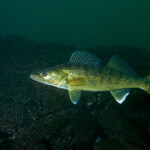Maine’s governor objects to petition requesting vertical-line prohibition

The U.S. state of Maine’s governor, Janet Mills, has written a letter to U.S. Secretary of Commerce Wilbur Ross objecting to a recent petition that aims to prohibit the use of vertical lines in the American lobster and Jonah crab fisheries in four areas off the New England coast.
The petition was submitted by The Pew Charitable Trusts earlier this month, with the intention of protecting the highly endangered North Atlantic right whale. Right whales are one of the most endangered mammal species in the world, and entanglement with vertical lines have led to new regulation that the Maine Lobstermen’s Association has objected to.
In its letter, Pew proposed the closure of four different areas off of New England to all vertical-lines in fishing.
The closures consist of a year-round gear closure in areas south of Martha’s Vineyard and Nantucket, and three seasonal offshore closures in the Gulf of Maine.
“Targeted vertical line closures where whales congregate and interact with heavy, lethal fishing gear are the fastest and most effective management tool available to prevent the unlawful deaths and likely extinction of the North Atlantic right whale,” the letter stated. “The proposed areas have been scientifically identified as posing the greatest risk of entanglement to the critically endangered North Atlantic right whale.”
Mills’ letter, however, objects to the petition, stating that regulation is currently in progress to protect the whales, and that that regulation has benefitted from broader stakeholder input.
“It is my sincere hope that you will ensure that NOAA Fisheries continues to pursue development of this rule, which has been developed through the input of a diverse body, the Take Reduction Team (TRT),” Mills said in a statement. “The TRT includes fishermen who understand the operational realities posed by various measures and are working side by side with the conversation community to identify practical, safe solutions to protect right whales.”
Mills also wrote that Pew’s assertion that the closures would have minimal impact was “patently untrue.”
Maine’s lobster industry is one of the nation’s most valuable fisheries, taking in an estimated USD 485 million (EUR 431 million) in 2019.
“Maine’s lobster harvesters are concerned about the status of North Atlantic right whales,” stated Governor Mills. “My commissioner of marine resources, Patrick Keliher, has been working closely with the industry to develop a plan that provides meaningful protections in the areas of greatest risk to whales, while also ensuring our fishery can continue to operate safely. We remain committed to working toward these objectives.”
On Thursday, 25 June, one of the critically endangered whales was found dead off the New Jersey coast. Scientists estimate less than 400 of the whales remain alive in the wild.
NOAA, the Atlantic Marine Conservation Society, and the Marine Mammal Stranding Center are conducting an investigation to determine how the animal died, the agency said in a press release.
Photo courtesy of Wikimedia






Share